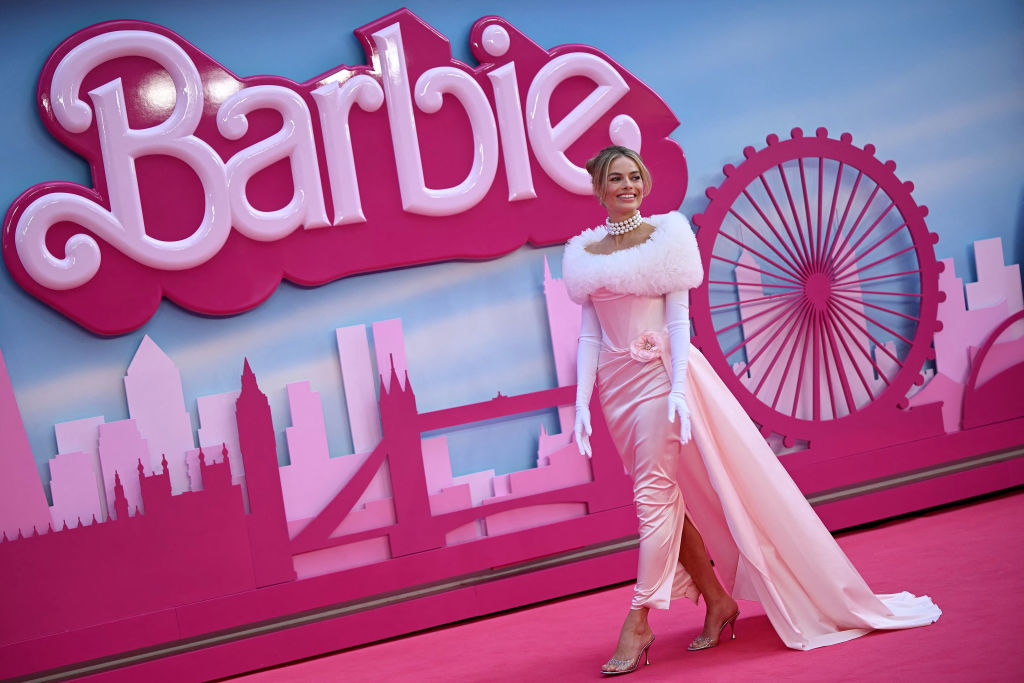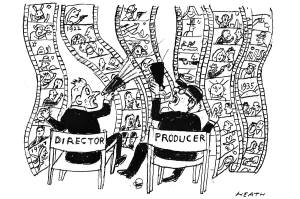Colombian pop singer Shakira caused quite the stir this week when she revealed that her sons “absolutely hated” the Barbie movie.
Barbie, directed by Greta Gerwig, had a major cultural moment last year. Hot pink came back in fashion, people were hosting Barbie-themed parties and everyone was obsessing over lead Margot Robbie’s vintage Barbie-inspired clothing on the movie’s press tour. It was Barbie-mania, and the film earned $1.4 billion worldwide.
Shakira’s family, though, weren’t fans of the global phenomenon. She said her nine- and eleven-year-old sons didn’t enjoy the movie because they found it to be “emasculating.” And, she added, “I agree, to a certain extent.”
Critics have slammed Shakira in response, as they do when anyone criticizes the uniculture, accusing her of not understanding the movie and missing the point. “Barbie is not made for Shakira and her pre-adolescent sons, insofar as she presents her family in the Allure piece: it’s a story about women coming into power autonomously, independent of the patriarchy and all its trappings,” a Salonwriter responds.
I’d posit that Shakira actually understands the “unabashedly feminist” film more than her critics do. Her commentary on the problems she had with the movie are insightful; she acknowledges the film’s worthy goal of female empowerment while suggesting that it went too far in its negative depictions of men.
“I’m raising two boys. I want ’em to feel powerful too [while] respecting women. I like pop culture when it attempts to empower women without robbing men of their possibility to be men, to also protect and provide. I believe in giving women all the tools and the trust that we can do it all without losing our essence, without losing our femininity,” Shakira said.
She continued, “I think that men have a purpose in society and women have another purpose as well. We complement each other, and that complement should not be lost.”
The Barbie movie operates on the premise that men have to sacrifice some of their masculinity in order for women to succeed. There are only two positive depictions of men in the film: one is the husband of America Ferrera’s character, who acts as an unquestioning chauffeur, and the other is Allan, a meek and spindly version of Ken. The other Kens are derided as ignorant himbos and the male CEO of Mattel and his acolytes are presented as faux feminists obsessed with control and profit.
Barbieland and the real world are essentially mirrors of one another; in Barbieland, the Barbies subjugate and repress the men, while in the real world, the inverse is true. Except when Barbie returns to Barbieland, she doesn’t have a spark of realization that she was treating Ken the way she was treated during her trip to the real world — like an accessory.
Instead, she is horrified that the Kens have taken over the DreamHouse and turned it into “Mojo Dojo Casa House” and that the Barbies are happily serving them “brewskis.” Even though the Barbies say they are enjoying the new world order, Barbie recognizes they must be brainwashed — much like feminists insist women like Shakira, who believe in innate differences between men and women and traditional gender roles, must have internalized misogyny. Barbie “deprograms” the other Barbies and they plot and scheme to distract the Kens so they can take back control of the Barbieland government. Perhaps we are meant to draw parallels between how Barbie recoils at the Kens seizing power and how Gerwig believes men behave when women challenge the “patriarchy,” but if that were the case, would Barbie still be the heroine of the movie?
In the end of the movie, as Barbie prepares to go back to the real world, she attempts to help Ken self-actualize. But just through their facial expressions and body language, it is clear that Barbie is more enlightened and evolved than her male counterpart, and Ken is not ready to join her in the real world. Despite Barbie’s prodding, he is still Just Ken, and maybe that’s all he will ever be. Barbie is superior because she feels real emotions, understands death and has to go to the gynecologist. Ken’s valid concerns are belittled, reduced to his love of beach, karate and golf.
To Shakira’s point, the movie tends to paint men and women as adversaries who can only get ahead by reducing the other. They are never shown as complementary, as groups that wouldn’t exist without the other and who have inherent and equal value.
Barbie doesn’t owe anyone anything; it’s just a movie, at the end of the day. But Shakira and her sons are not obligated to like it and they should be able to share their valid opinions about some of the movie’s themes without being on the receiving end of feminist vitriol.






















Leave a Reply